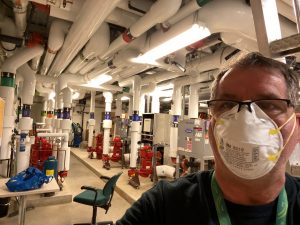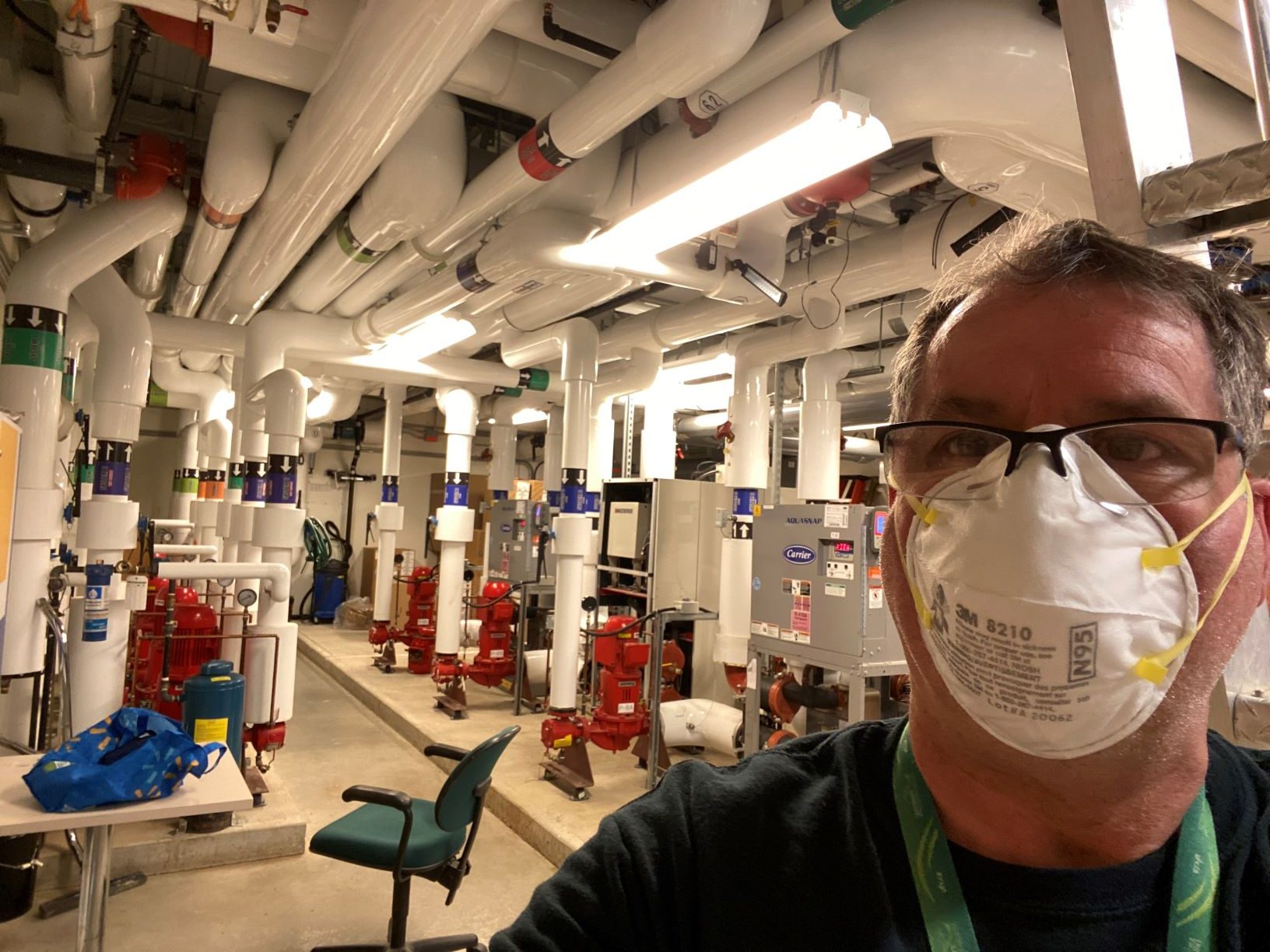Submitted by Guest Blogger, Mark Goudsblom, Director, Campus Planning and Facilities Management

As UFV plans towards a full return of students, faculty and staff on campus this fall, one item the Facilities Management department is being very mindful of is the building heating, ventilation and air conditioning (HVAC) systems. The leading authority on such systems in North America is ASHRAE (the American Society of Heating, Refrigerating and Air-Conditioning Engineers). ASHREA, has made recommendations on how to improve HVAC filtration during the COVID-19 pandemic through the filters used in the building HVAC systems and how to operate the HVAC system to provide the best quality air.
ASHREA’s filtration recommendation is to increase the filter “fineness” to a minimum of MERV-13 for all recirculating air systems. At UFV we have updated all building systems that have what we consider re-circulating systems to include MERV-13 filters.
ASHRAE has indicated that single pass units (units that just bring in outside air) do not need to have their filters changed to this level. A few older buildings have these single pass units which bring fresh air into the building consistently.
In addition, UFV buildings systems are programmed to start 2 hours ahead of people coming into the building, and flush the space with 100% fresh outside air. Besides the flush of fresh air in the morning all our systems are currently set to ensure at least 30% of fresh air is brought into the buildings consistently which meets the cubic feet per minute (CFM) per person fresh air requirements made by ASHRAE.
Some of UFV’s buildings have CO2 sensors in the return air ducts, although not a requirement it is a best practice. These sensors will tell the system that further air exchanges are needed if high CO2 readings are found in the return air and will increase the air exchanges in the building. We have these CO2 sensors in our more modern buildings, for example, the student union building and the Gym at Abbotsford and A-building in Chilliwack. These sensors are set to trigger this increased air exchange at 800 Parts Per Million (PPM) of CO2.
If we receive air quality concerns, we will investigate based on the information provided. Once we know the cause, we will take actions to mitigate the issues.
We also perform regular maintenance on our HVAC systems as per manufacturer’s recommendations and best practices as recommended by ASHRAE.
However, to ensure we meet the best standards we will be conducting air quality testing starting this summer and throughout fall with the return of students, faculty and staff. These regular test will provide good air quality indicators in our highest use buildings. In addition, any time air quality concerns are raised we will conduct air quality testing to verify that our systems are maintaining good air quality. CO2 monitoring will be an important indicator of fresh air in the building and the sufficiency of air exchanges.
Air quality testing will be conducted by a 3rd party environmental health and safety consulting firm to ensure professional unbiased testing and reporting.
If you have any questions or concerns regarding air quality, please contact the facilities service desk at 604-854-4542 Monday to Friday 8 a.m. – 4:30 p.m. or Campus Security 1-855-239-7654 after hours.
Campus Planning and Facilities Management

